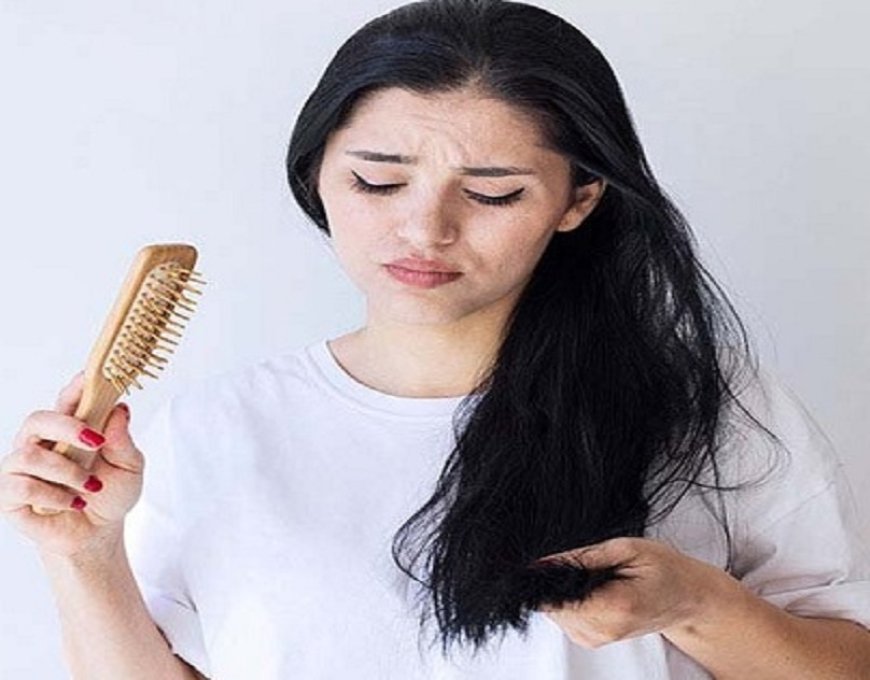What Medications Can Stop Hair Loss?
Discover effective hair loss treatments, from lifestyle changes to medical solutions, to help stop hair loss and promote healthy regrowth.

Hair loss in Islamabad is a common issue that affects both men and women, leading many to seek effective treatments to preserve their hair and self-esteem. Fortunately, various medications are available that can help stop hair loss and promote regrowth. Understanding these options can empower individuals to make informed decisions about their hair restoration journey. This blog explores some of the most popular medications used to combat hair loss, how they work, their effectiveness, and potential side effects.
1. Finasteride (Propecia):
Mechanism of Action:
Finasteride is a prescription medication primarily used for male pattern baldness (androgenetic alopecia). It works by inhibiting the enzyme 5-alpha-reductase, which converts testosterone into dihydrotestosterone (DHT). DHT is a hormone that shrinks hair follicles, leading to hair thinning and loss in individuals genetically predisposed to this condition.
Effectiveness:
Clinical studies have shown that finasteride can significantly reduce hair loss and stimulate regrowth in many men. Users often notice results after three to six months of consistent use, with improved hair density particularly in the crown and mid-scalp regions. In fact, approximately 80% of men experience some degree of hair regrowth while on finasteride.
Potential Side Effects:
While finasteride is generally well-tolerated, some users may experience side effects, including decreased libido, erectile dysfunction, or breast tenderness. These side effects are relatively rare, but anyone considering finasteride should consult a healthcare provider to discuss the risks and benefits.
2. Minoxidil (Rogaine):
Mechanism of Action:
Minoxidil is an over-the-counter topical treatment available in liquid and foam formulations. Unlike finasteride, which addresses hormonal factors, minoxidil works as a vasodilator. It increases blood flow to hair follicles, thereby stimulating their growth and prolonging the hair growth cycle.
Effectiveness:
Minoxidil is suitable for both men and women experiencing hair loss. Many users see noticeable improvements after using the product consistently for at least four to six months. While it may not work for everyone, it is particularly effective for those in the early stages of hair loss.
Potential Side Effects:
Some individuals may experience scalp irritation, dryness, or unwanted facial hair growth if the product accidentally comes into contact with other areas. However, minoxidil is generally safe for most users when applied according to the instructions.
3. Dutasteride (Avodart):
Mechanism of Action:
Dutasteride is similar to finasteride but is more potent. It blocks the conversion of testosterone to DHT by inhibiting both types of the enzyme responsible for this process. Although not FDA-approved for hair loss, many healthcare providers prescribe it off-label for men who do not respond to finasteride.
Effectiveness:
Research indicates that dutasteride can be more effective than finasteride for some individuals, with users reporting significant hair regrowth. Hair regrowth typically occurs after several months of use, making it a viable alternative for those seeking stronger treatment options.
Potential Side Effects:
Like finasteride, dutasteride may cause side effects such as decreased libido and sexual dysfunction. It is crucial to consult with a healthcare provider to weigh the potential benefits against the risks before starting this medication.
4. Spironolactone:
Mechanism of Action:
Spironolactone is a medication primarily used to treat high blood pressure, but it is also effective for women experiencing hair loss, particularly due to hormonal imbalances such as polycystic ovary syndrome (PCOS). It acts as an anti-androgen, blocking the effects of male hormones that contribute to hair thinning.
Effectiveness:
Women taking spironolactone for hair loss often report significant improvements in hair density and reduced shedding. It is particularly beneficial for women with androgenetic alopecia or hair loss associated with hormonal fluctuations.
Potential Side Effects:
Common side effects include dizziness, fatigue, and menstrual irregularities. While serious side effects are rare, it is essential for women to consult their healthcare provider before starting treatment with spironolactone.
5. Platelet-Rich Plasma (PRP) Therapy:
Mechanism of Action:
PRP therapy involves drawing a small amount of blood from the patient, processing it to concentrate the platelets, and injecting it into the scalp. The growth factors in the platelets stimulate hair follicles and promote regrowth.
Effectiveness:
Many patients with androgenetic alopecia and other types of hair loss have experienced positive results from PRP therapy. Patients often notice improvements in hair thickness and overall scalp health after several treatment sessions.
Potential Side Effects:
Since PRP therapy uses the patient’s blood, side effects are minimal. However, some individuals may experience temporary discomfort, redness, or swelling at the injection site.
6. Corticosteroids:
Mechanism of Action:
Corticosteroids are anti-inflammatory medications that can effectively treat autoimmune-related hair loss, such as alopecia areata. They work by suppressing the immune response that attacks hair follicles, reducing inflammation and promoting regrowth.
Effectiveness:
Many individuals with alopecia areata see significant improvement after corticosteroid injections. Regrowth can occur within weeks, although ongoing management may be necessary for sustained results.
Potential Side Effects:
While corticosteroids are effective, long-term use can lead to side effects such as skin thinning and weight gain. However, when used for short durations under medical supervision, they are generally considered safe.
Conclusion:
Various medications are available to help stop hair loss and promote regrowth. From finasteride and minoxidil to spironolactone and PRP therapy, each option has unique benefits and considerations. Consulting with a healthcare provider is essential to determine the underlying cause of hair loss and the most suitable treatment for your specific needs. With the right approach, you can effectively manage hair loss and enjoy a fuller, healthier head of hair.
For more information visit Dynamic Clinic PK
What's Your Reaction?

















